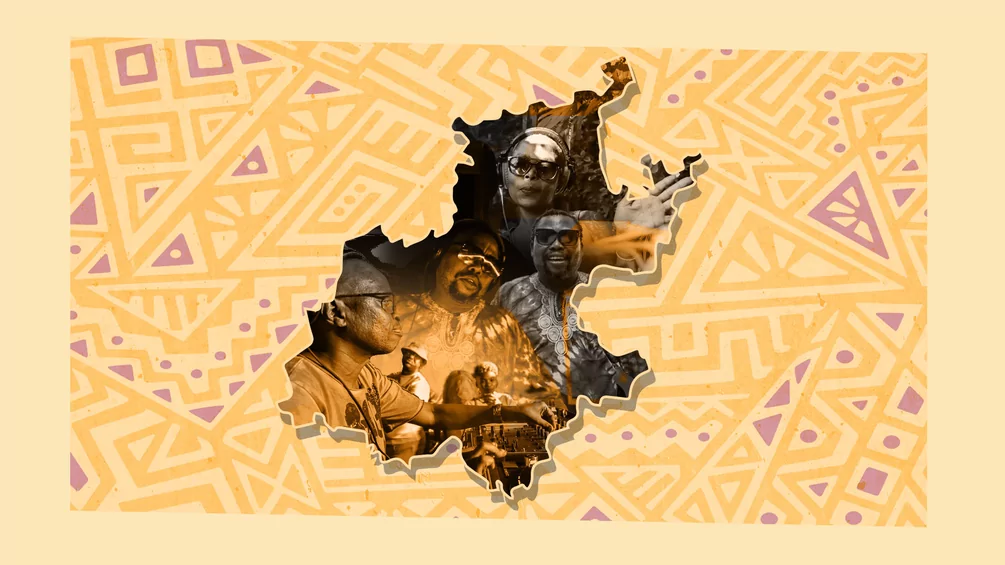
Gauteng style: a history of house music in South Africa
It’s sometime after 11pm on a warm December night when DJ Mag meets Vinny Da Vinci. An understated guy, this giant of South Africa’s club underground long since reached boss level among fans of 4/4 in his homeland and beyond. A modest-sized crowd are locked into his deep rhythms on the small outdoor terrace at Tsweu Street Lifestyle Café, with resident Mr Slow soon taking charge, ensuring the tangible vibe in this typically informal township venue continues. Beyond the entrance, these ends of Pretoria’s Mamelodi neighbourhood have long held a reputation as a nightlife destination, offering several addresses designed for drinking and dancing. But our evening is all about Monday Therapy.
This weekly session also involves DJ Christos, another of the country’s dance music godfathers. Among many other things, he’s responsible for co-founding (although is no longer actively involved in) the legendary Kalawa Jazmee Records, a cornerstone of the kwaito scene, starting South Africa’s annual Dance Music Summit and, alongside Da Vinci, creating the iconic duo DJs At Work. Both men claim musical legacies stretching back to the late 1980s, and were pivotal in establishing house music across Gauteng.
South Africa’s smallest but most populous province, the nation’s largest city and economic powerhouse is here, Johannesburg, as is the executive capital, Pretoria — unofficially regarded as ground zero for SA deep house culture. Arriving from the UK this morning, we’re here to try and learn how these artists and others first began spinning tunes from the US, UK and Europe, creating the soundtrack to a period of socio-political change on a scale unmatched anywhere in the world.
“I’ve been a DJ for 30-plus years, I just loved music growing up. I was in a household where there was music playing all the time, not necessarily dance — soul, R&B, jazz,” Da Vinci tells us after the gig. “DJ culture started coming through the love of music, but mainly a clique of guys, friends of mine, some sadly have passed on. One — Dion, DJ Shoes — had a DJ console with turntables, mixer, tape deck, and equaliser built in, so you just plugged the speakers in. We were booked for weddings, birthday parties, playing anything that worked.
“That was around 1986, maybe 1987. As years went by, my first experience of a nightclub happened. One opened in my ‘hood, Ship Ahoy, and I heard about a guy there, DJ Correy,” he continues. The two struck up a friendship, with Da Vinci often standing in the booth simply to watch, listen, and learn. “Time went on, another club opened in the township, a Sunday place, Cherry’s. We’d go, chill, hear music, and it became our regular place. There was a resident, one day he wasn’t there. I was having a drink and there was no one to play, they were using a CD or something. A friend knew I’d learnt the tricks and told management.”
Driven home by the owners to collect some vinyl, one of Da Vinci’s first sets followed through belt-drive turntables, and as the night ended a residency was offered. Beginning in 1989, he had a regular platform for marathon all-night mixes, taking in everything from Milli Vanilli to hip-hop, although it was club remixes of artists like Madonna that began turning him on to the deeper ends of producers like Louie Vega and Frankie Knuckles.





